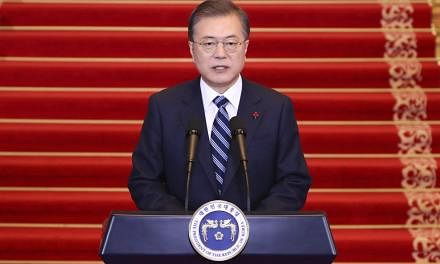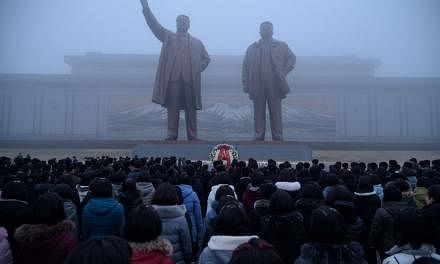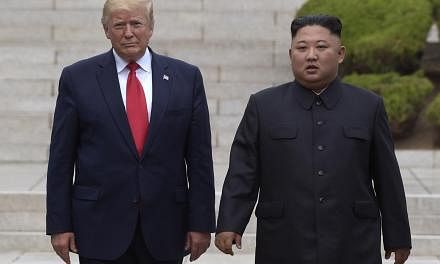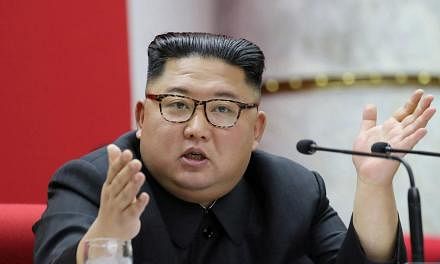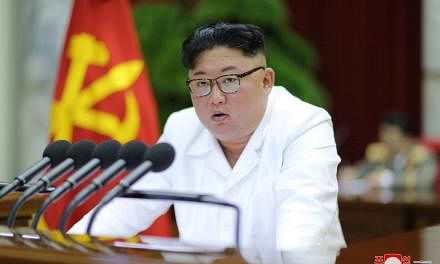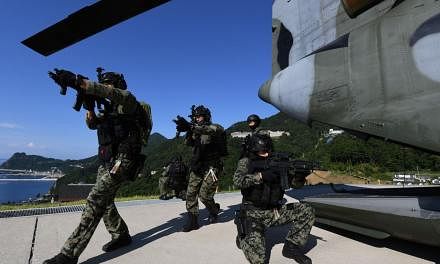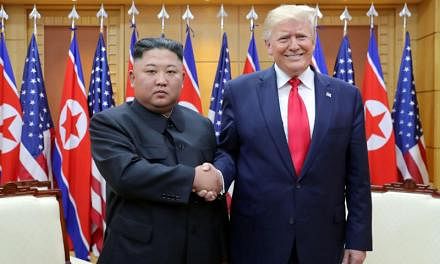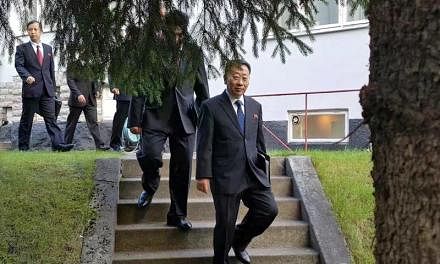Despite the differing accounts over the Hanoi summit's abrupt conclusion, the US and North Korea should maintain close dialogue and work to advance denuclearisation on the Korean peninsula, Beijing said.
China has also consistently advocated that the United Nations Security Council's sanctions against Pyongyang should include "reversible clauses" that allow for measures to be adjusted according to the denuclearising steps it takes, Chinese Foreign Ministry spokesman Lu Kang said at a regular media briefing yesterday.
While the US and North Korea have differences on the issue of lifting sanctions, "both sides believe that the lifting of sanctions is an important component of the denuclearisation process", said Mr Lu.
"I think this is common ground that should be seized."
Chinese experts told The Straits Times that the breakdown of the talks in Hanoi pointed to the gulf in expectations between US President Donald Trump and North Korean leader Kim Jong Un, but also fuelled Chinese suspicions that the US was not serious about negotiations to denuclearise North Korea.
For instance, expectations going into the summit were that liaison offices would be set up, while a declaration would be signed that would bring about the formal end to the Korean War. Neither of those things happened because the US is not really interested in such a declaration and its consequences, said Professor Su Hao of the China Foreign Affairs University.
"Such a declaration being signed would mean the end of hostilities between the North and the South and a normalisation of inter-Korean ties, which means Seoul's dependence on the United States for security would be greatly reduced, and that is unacceptable to the US," he said.
This is why despite knowing that the lifting of UN sanctions is a core issue for Pyongyang, Washington has refused to budge, he added.
Peking University professor Jia Qingguo said that while both sides have indicated that talks will continue, the ball is now in Pyongyang's court to ensure that the momentum of talks continue.
"Whether the breakdown of negotiations was because North Korea's targets were low or the US' demands were high is a matter of perspective," he said. "But I believe if North Korea is willing to make a relatively large concession, the partial lifting of UN sanctions is still possible."
Nationalistic tabloid Global Times noted in an editorial that a lack of progress on denuclearisation means Mr Trump will face increased pressure back home, and the approaching presidential election means he may be forced to take a tough attitude towards Pyongyang again.
"China and South Korea should play a role in safeguarding the achievements made so far... Beijing should help Pyongyang stick to its current moderate line, while Seoul should firmly resist any Washington attempt to coerce North Korea with threats of resuming joint drills," it wrote.
Experts said Mr Kim is likely to confer with Chinese President Xi Jinping soon, as he did immediately before and after the Singapore summit last year. China is Pyongyang's only major ally and its main trading partner.
"The outcome of the Hanoi summit was definitely not what Kim Jong Un hoped for, so it is likely he would want a certain degree of coordination with China on the next steps," said Prof Su, who is also visiting senior fellow at the S. Rajaratnam School of International Studies.

